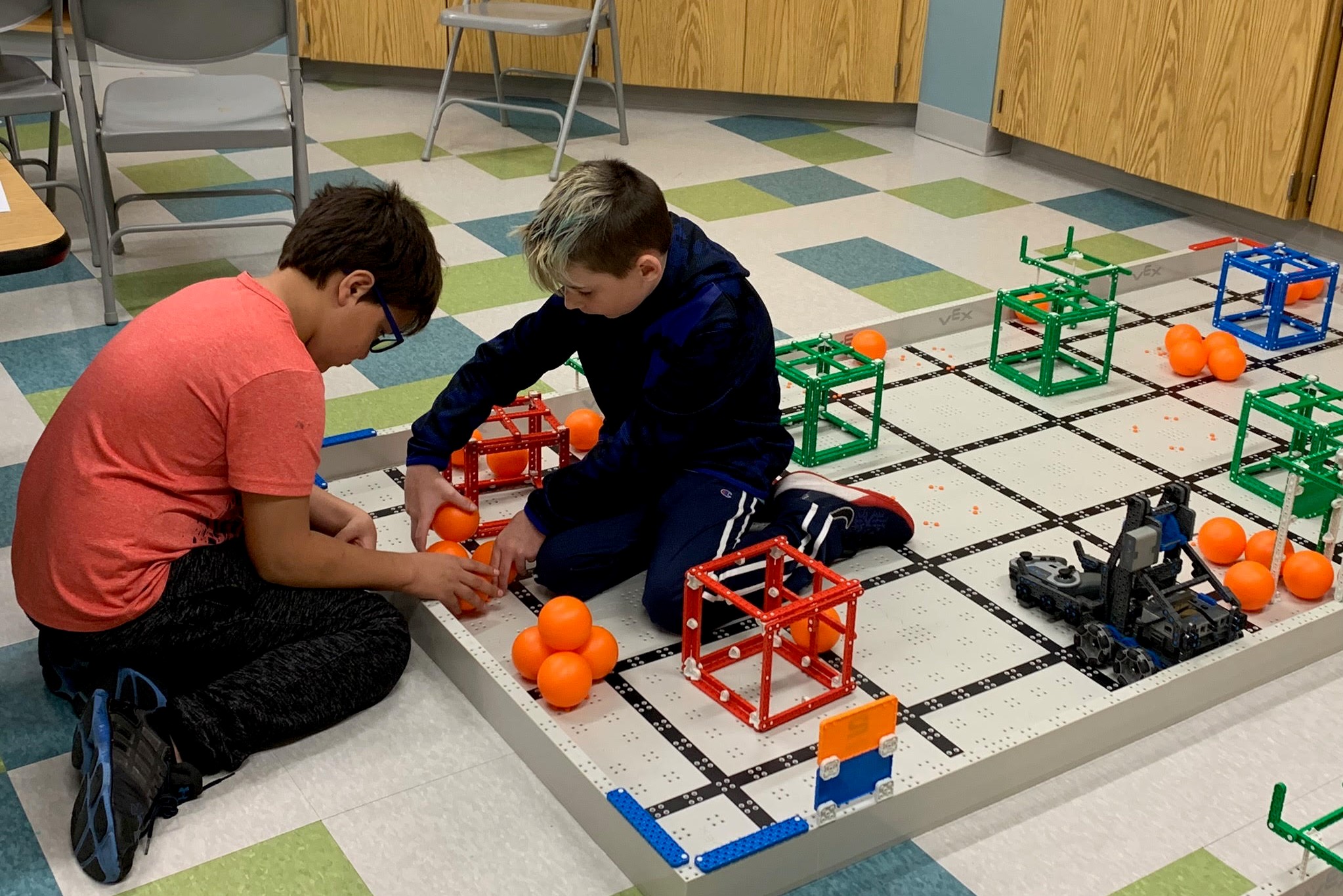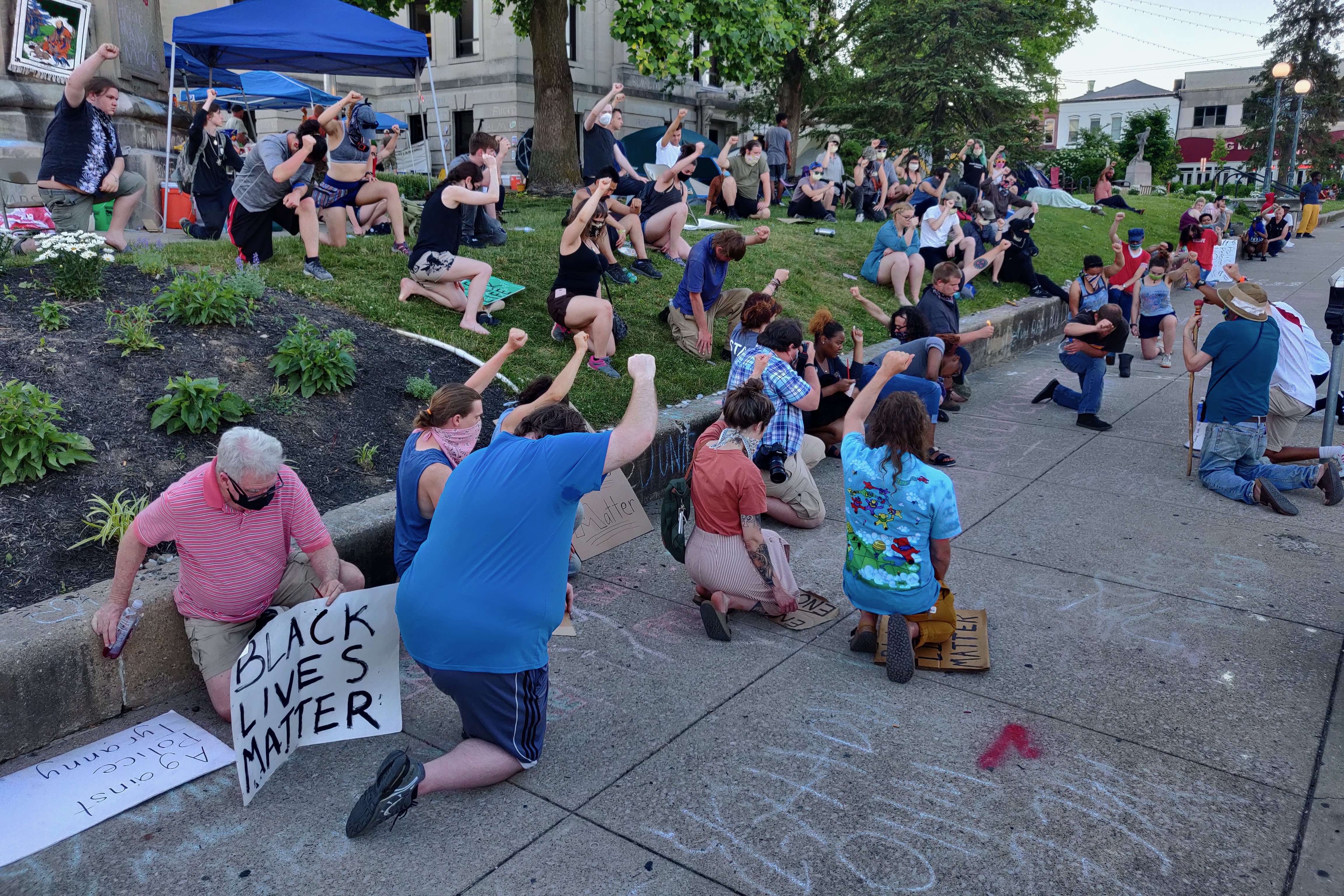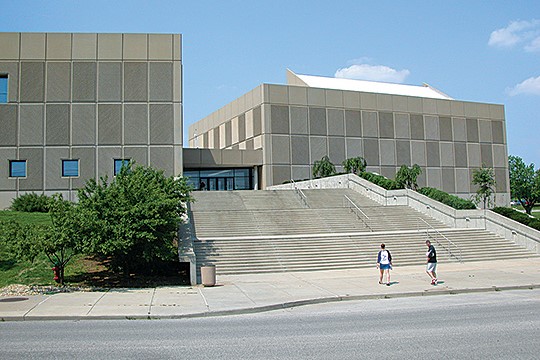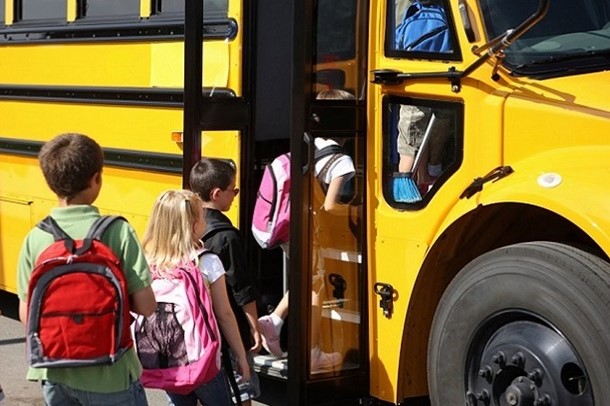
(Allison Zeithammer, WFIU/WTIU News)
With a little over a month until school starts, the Monroe County Community School Corporation has released a tentative plan for getting kids back to school. Parents will be able to choose between in-person or online education.
READ MORE: MCCSC Releases Draft On Fall Reopening
When the Corporation surveyed parents’ thoughts, about 30 percent of respondents said they would consider keeping their students at home to learn online because of the coronavirus.
Elliot Haspel, an education policy expert and program officer for the Robins Foundation in Richmond, Va. says data from around the world seem to show that students 12 and under at schools that have opened are not spreading coronavirus.
“All the evidence points to the fact that they're probably going to be just fine,” he said. “They're probably not going to get it if they do have a very mild and if they did happen to catch it, the chances of them sent bringing it back home are actually quite low.”
The CDC reports since Feb. 1, 28 children 14 and under have died of coronavirus in the U.S.
A French study released this week by the Pasteur Institute determined children have not been spreading the virus: Of 510 students studied at six different primary schools, just three probable cases of COVID-19 were reported. Data from Denmark, Finland and Australia have come to similar conclusions.
“At this point, 22 of the European nations have been back in school for enough weeks that we would have seen cases start to spike,” Haspel said.
Haspel notes that the science on the virus is far from settled, but the available data point to young children not spreading COVID-19 at school.
Ana Bento, IU professor of public health and biology, says the studies are encouraging, but limited.
“This is incredibly encouraging, but we cannot say for sure at all because the schools were the first thing to close at the beginning of the epidemic,” she said. “So the possibility of transmission between children was incredibly curbed. The studies are very encouraging but too limited to make broad assumptions about how infectious children are.”
Haspel acknowledges the uncertainty.
“I think schools need to be focusing most on keeping the adults in the building safe, because if you take this case, the kids aren't likely to get it,” he said. “And if they're not likely to transmit it and honestly be harmed by it, then they actually need to worry less about the kids, you need to worry about the teachers and the other staff that are in the schools.”
Bento says if that is the case, and adults are the virus’ primary spreaders, then the focus should absolutely be put on them. But for now, parents should be teaching their students that things won’t be the same as before the pandemic.
“It’s probably near impossible trying to educate the kids that their old interactions are not possible at the moment,” she said. “Like touching faces, being too close, because kids interact in different way, right? They don't have that personal space bubble. But it's necessary.”
MCCSC schools are requiring all students and staff to self-screen daily for COVID-like symptoms, including a fever of over 100.4 degrees.
Masks are mandatory, and desks will be spaced 6 feet apart. When possible, teachers and students will remain in groups throughout the day, and teachers will move between rooms to keep students from mingling.
Scheduled times will be set for hand-washing; alcohol-based hand sanitizer will be plentiful. Pick-up and drop-off times will be staggered to keep adults and children from congregating.
The data for older kids are a little murkier – provisional death counts start noticeably increasing for people aged 15 to 24.
MCCSC is allowing high schoolers to take all their classes online if they’d like, giving first preference to juniors and seniors.
Both Haspel and Bento agree online schooling options are useful for those who might be more susceptible to COVID-19, or those who just don’t feel comfortable sending their kids to school.
“We’ve got over 14,000 employees and people involved in our school corporation,” said Paul Farmer, president of the Monroe County Education Association, during last week’s Noon Edition on WFIU. “It’s not if we’re gonna have COVID, it’s when. It’s going to show up. And so, do we shut down a single class? A building? Do we shut down the whole Corporation?”
Superintendent Judy DeMuth says the district will work with the local health department if that happens, and schools will close for a period of time.
MCCSC officials aren’t advocating for one method over the other – they’re encouraging feedback and will return next week to make the plan official.
Then, it’s back to school Aug. 5.
For the latest news and resources about COVID-19, bookmark our Coronavirus In Indiana page here.










